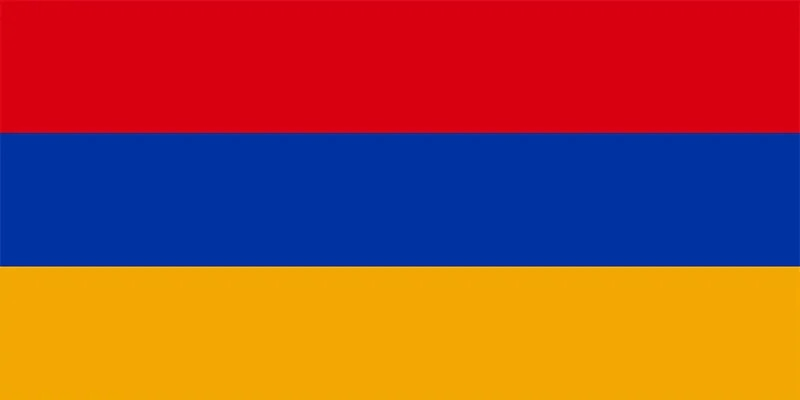LAUSD Acknowledges Armenian Genocide Remembrance Day
May 8, 2023
Los Angeles Unified Schools had the day off on Monday, April 24 in recognition of Armenian Genocide Remembrance Day.
This unassigned day stemmed from a LAUSD Board of Education decision in October 2020, when board members voted unanimously to add the new holiday.
Board member Kelly Gonez, who authored the resolution, thought it was important to support the Armenian community of Los Angeles.
“Each year, Armenian families across Los Angeles remember those lost in the first genocide in modern history, and many of them have a direct connection to the tragedy,” she said.
In fact, Los Angeles has the highest population of Armenians in the United States, many settling in the Glendale area to escape the genocide of the early 1900s.
Assistant principal, Mariana Kayichian, was surprised to hear about the new unassigned day.
“As somebody with an Armenian background, I was really surprised to see that, because I don’t think we’ve ever gotten that sort of recognition before,” Kayichian said.
Kayichian, who went to a school with about 40% Armenians– Crescenta Valley High School in La Crescenta, CA– was very involved in the Armenian community growing up.
“On April 24, what we did every single year is we all went to the Turkish consulate to protest, to demand recognition, because to this day the genocide hasn’t been recognized by that government. And so on that day, nobody was at school,” Kayichian said.
April 24 is a day dedicated to remember the start of the genocide, which killed 1.5 million Armenians.
The genocide mostly took place in eastern Anatolia, which held a large community of Christian Armenians. These Armenians were treated as second-class citizens of the Ottoman Empire, paying higher taxes and having few legal and political rights.
In 1908, a group called the Young Turks gained control of the empire, and focused heavily on Turkish nationalism.
As the Turks entered World War 1, suspicions arose from military leaders about the loyalty of Christian Armenians. Many Turkish officials felt that Armenians would support nearby Christian governments, such as the Russian army. The Turkish government began to push for the removal of Armenians in the east.
On April 24, 1915 the genocide began, and several hundred Armenians were arrested and executed. As the genocide continued, Armenian peasants were forced to march through the Mesopatamian desert until they dropped dead. The Young Turks created killing squads, which used many different methods for mass murder, including drowning, burning, and crucifixion. The Turkish government also deported thousands of Armenians and forced children to convert to Islam.
“There’s so many other examples of this throughout history, not just with Armenians, so it’s just about having that global awareness and empathy towards other people and the historical trauma that they could be dealing with, as an individual or a family,” Kayichian said.
Today, Turkey continues to deny the state-sanctioned murder and mass deportation of Armenians. Historically, Turkey has been a strong ally of the United States and other Western nations, so these governments have been slow to condemn the killings.
However, on April 24, 2021, President Joe Biden recognized the tragedy as a genocide, a change from past presidents who have been hesitant to use the word.
“While it’s a day for us to remember, it’s also a day for us to be active and voice our collective desire for global recognition,” Kayichian said.
President Biden’s choice to recognize the genocide signifies an important step for the nation. Historical topics that deal with issues in human rights, such as the history of slavery in the United States or the forced displacement of Native Americans, although challenging to confront, have to be recognized if we want to grow as a country.
And just as President Biden’s recognition is a significant step for the nation, LAUSD’s recognition of the day is a significant step for the district.
“I just hope that the district continues to have professional development for all staff to be aware of these historical moments, to make sure that they’re then passing that awareness and knowledge off to the students. I’m really proud of the district for their focus on culturally responsive lessons and units, and I hope that a lot of different cultures continue to be represented,” Kayichian said.









 Watch the full video o
Watch the full video o







![Taylor Swift’s newest album titled Midnights 🌙 takes a deeper look at the persona of Taylor herself, and according to reporter Alina Miller, although this isn’t Taylor’s best work, there are highlights worth mentioning about. 💫
Click the link in the bio to check out the full article!
[Photo Caption: Taylor Swift hits all top 10 spots on Spotify’s Billboard Top 100 chart]
#taylorswift #midnights #tiktok #antihero #spotify](https://scontent-iad3-1.cdninstagram.com/v/t51.29350-15/314744727_1556543814822641_1643591421920256829_n.jpg?_nc_cat=110&ccb=1-7&_nc_sid=8ae9d6&_nc_ohc=aDxNzq2snTYAX_gAl0G&_nc_ht=scontent-iad3-1.cdninstagram.com&edm=ANo9K5cEAAAA&oh=00_AfBa4EluVzZT-7d5rKyT6tLJo0UJuCvRJPSCMX71aeO38Q&oe=63965890)



 Watch the full video
Watch the full video 

Marina Avetyan • May 10, 2023 at 10:09 AM
So grateful that our students have the opportunity to learn about facts in History! Hoping this article will inspire more young writers to investigate and be the voice for our ancestors and those who continue to be repressed, killed and forced out of their homelands. Well done and continue to advocate for the voiceless and inspiring your peers and adults to reach a wider audience and raise awareness.